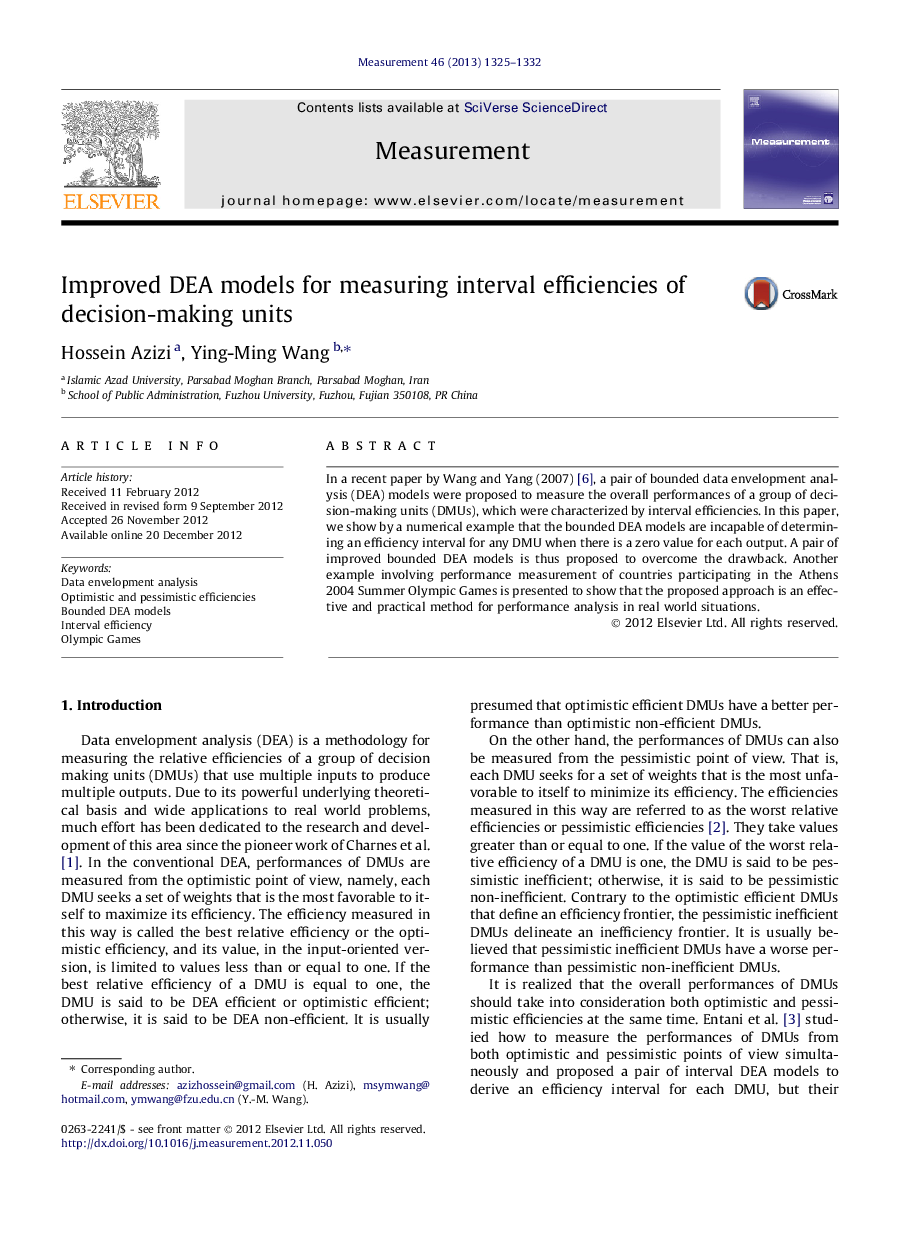| Article ID | Journal | Published Year | Pages | File Type |
|---|---|---|---|---|
| 727477 | Measurement | 2013 | 8 Pages |
In a recent paper by Wang and Yang (2007) [6], a pair of bounded data envelopment analysis (DEA) models were proposed to measure the overall performances of a group of decision-making units (DMUs), which were characterized by interval efficiencies. In this paper, we show by a numerical example that the bounded DEA models are incapable of determining an efficiency interval for any DMU when there is a zero value for each output. A pair of improved bounded DEA models is thus proposed to overcome the drawback. Another example involving performance measurement of countries participating in the Athens 2004 Summer Olympic Games is presented to show that the proposed approach is an effective and practical method for performance analysis in real world situations.
► We present two perspectives for obtaining bounds of efficiency with exact data. ► The optimistic view uses the efficiency frontier, giving the best efficiency. ► The pessimistic view uses the inefficiency frontier, giving the worst efficiency. ► The efficiency interval presents all possible evaluations from various viewpoints. ► This interval provides the decision maker with all possible values of efficiency.
